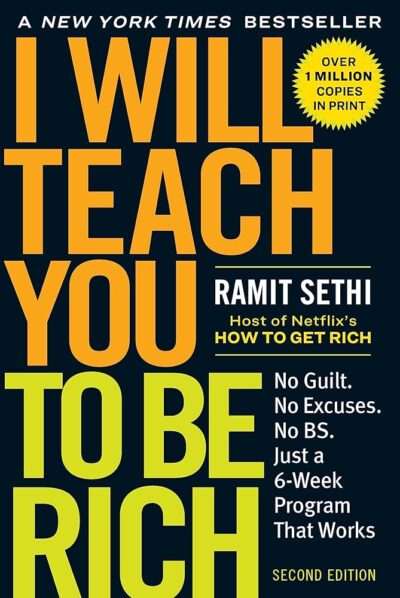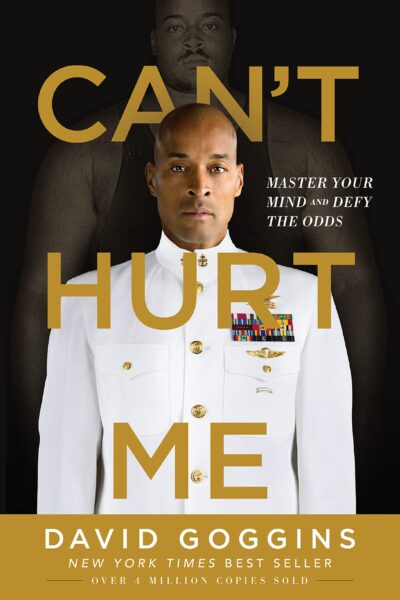88 Results in the "Non-Fiction" category
Biography & Memoir (513)
Books Like (9)
Business & Finance (3)
Children’s Fiction (235)
Dystopian (30)
Education & Learning (26)
Fantasy (1832)
fashion (1)
Fiction (5781)
Health & Wellness (21)
Historical Fiction (662)
Horror (162)
Literary Fiction (1011)
Novel (240)
Others (106)
Philosophy (147)
Poetry (208)
Politics & History (126)
Posts (121)
Psychology (50)
Religion & Spirituality (1)
Romance Novel (771)
Science & Technology (65)
Science Fiction (409)
Self-Help & Personal Development (112)
The Ultimate Book Lists (1)
Thriller / Mystery (912)
Travel & Adventure (2)
True Crime (57)
view (96)
Young Adult (751)
-
Story
Hillbilly Elegy
 Hillbilly Elegy is a deeply personal memoir by J.D. Vance that examines his upbringing in a poor Rust Belt town and offers a powerful insight into the struggles of America’s white working class. Raised in Middletown, Ohio, by a family with roots in the Appalachian region of Kentucky, Vance tells a story marked by instability, addiction, violence, and poverty. Despite these challenges, he eventually…
Hillbilly Elegy is a deeply personal memoir by J.D. Vance that examines his upbringing in a poor Rust Belt town and offers a powerful insight into the struggles of America’s white working class. Raised in Middletown, Ohio, by a family with roots in the Appalachian region of Kentucky, Vance tells a story marked by instability, addiction, violence, and poverty. Despite these challenges, he eventually…-
2.3 K • Jun 25, '25
-
2.3 K • Jun 25, '25
-
2.3 K • Jun 25, '25
-
-
Story
The Devil’s Dictionary
 The Devil’s Dictionary by Ambrose Bierce is a satirical and darkly humorous collection of witty, cynical definitions that expose the hypocrisies and absurdities of human nature, society, and language.
The Devil’s Dictionary by Ambrose Bierce is a satirical and darkly humorous collection of witty, cynical definitions that expose the hypocrisies and absurdities of human nature, society, and language.-
5.0 K • Nov 8, '24
-
5.2 K • Nov 8, '24
-
4.1 K • Nov 8, '24
-
-
Story
Ban and Arriere Ban
 Ban and Arrière-Ban by George Meredith is a historical novel set in the medieval period, blending romance, adventure, and intrigue as it follows the lives of knights and noble families. The story explores themes of loyalty, honor, and personal conflict, focusing on the complex relationships between its characters as they navigate societal expectations and the challenges of chivalric duty. The novel's title refers to the medieval French legal terms for summoning all able-bodied men to arms, reflecting the novel's focus on military and familial obligations.
Ban and Arrière-Ban by George Meredith is a historical novel set in the medieval period, blending romance, adventure, and intrigue as it follows the lives of knights and noble families. The story explores themes of loyalty, honor, and personal conflict, focusing on the complex relationships between its characters as they navigate societal expectations and the challenges of chivalric duty. The novel's title refers to the medieval French legal terms for summoning all able-bodied men to arms, reflecting the novel's focus on military and familial obligations.-
4.1 K • Nov 8, '24
-
4.9 K • Nov 8, '24
-
4.0 K • Nov 8, '24
-
-
Story
I Will Teach You to Be Rich: No Guilt. No Excuses. Just a 6-Week Program That Works (Second Edition)
 I Will Teach You to Be Rich by Ramit Sethi offers a practical, 6-week program to improve your finances with no guilt or excuses. The book focuses on automating finances, optimizing spending, and investing smartly. The second edition includes updated advice and real-life examples, making it a great resource for anyone looking to build long-term wealth without sacrificing enjoyment.
I Will Teach You to Be Rich by Ramit Sethi offers a practical, 6-week program to improve your finances with no guilt or excuses. The book focuses on automating finances, optimizing spending, and investing smartly. The second edition includes updated advice and real-life examples, making it a great resource for anyone looking to build long-term wealth without sacrificing enjoyment. -
Story
The Argonautica
 The Argonautica by Apollonius of Rhodes is an epic Greek poem that chronicles the legendary voyage of Jason and the Argonauts in their quest for the Golden Fleece. Filled with adventure, divine intervention, and themes of heroism and love, the story blends mythological grandeur with human emotion, making it a cornerstone of classical literature.
The Argonautica by Apollonius of Rhodes is an epic Greek poem that chronicles the legendary voyage of Jason and the Argonauts in their quest for the Golden Fleece. Filled with adventure, divine intervention, and themes of heroism and love, the story blends mythological grandeur with human emotion, making it a cornerstone of classical literature.-
4.7 K • Nov 8, '24
-
4.5 K • Nov 8, '24
-
4.5 K • Nov 8, '24
-
-
Story
I Cheerfully Refuse
 "I Cheerfully Refuse" is a novel by Leif Enger, published on April 2, 2024. Set in a near-future America marked by societal collapse and environmental challenges, the story follows Rainy, a musician who embarks on a journey across Lake Superior in search of his beloved wife, Lark, a bookseller who has recently passed away. As Rainy navigates the treacherous waters, he encounters a society plagued by illiteracy, a corrupt ruling class, and crumbling infrastructure. Along the way, he forms unexpected alliances, including with a young girl named Sol, and becomes an inadvertent symbol of resistance against the oppressive forces that dominate this dystopian landscape. The novel explores themes of love, loss, resilience, and the enduring power of storytelling.
"I Cheerfully Refuse" is a novel by Leif Enger, published on April 2, 2024. Set in a near-future America marked by societal collapse and environmental challenges, the story follows Rainy, a musician who embarks on a journey across Lake Superior in search of his beloved wife, Lark, a bookseller who has recently passed away. As Rainy navigates the treacherous waters, he encounters a society plagued by illiteracy, a corrupt ruling class, and crumbling infrastructure. Along the way, he forms unexpected alliances, including with a young girl named Sol, and becomes an inadvertent symbol of resistance against the oppressive forces that dominate this dystopian landscape. The novel explores themes of love, loss, resilience, and the enduring power of storytelling.-
4.3 K • Jan 23, '25
-
4.7 K • Jan 23, '25
-
4.6 K • Jan 23, '25
-
-
 Legends and Lyrics: Second Series is a collection of poems by Adelaide Anne Procter, published in 1861. It features reflective and lyrical works exploring themes of faith, love, compassion, and social justice, showcasing Procter's delicate and heartfelt poetic style.
Legends and Lyrics: Second Series is a collection of poems by Adelaide Anne Procter, published in 1861. It features reflective and lyrical works exploring themes of faith, love, compassion, and social justice, showcasing Procter's delicate and heartfelt poetic style.-
4.0 K • Nov 8, '24
-
4.1 K • Nov 8, '24
-
4.4 K • Nov 8, '24
-
-
 Revenge of the Tipping Point by Steven J. Bickel follows a group of unlikely heroes uncovering a global conspiracy that threatens to plunge society into chaos. The novel explores the power of small actions and the unpredictable consequences of tipping points in both personal and political realms.
Revenge of the Tipping Point by Steven J. Bickel follows a group of unlikely heroes uncovering a global conspiracy that threatens to plunge society into chaos. The novel explores the power of small actions and the unpredictable consequences of tipping points in both personal and political realms.-
4.5 K • Jan 23, '25
-
4.5 K • Jan 23, '25
-
Chapter 9: Overstories, Superspreaders, and Group Proportions “OxyContin is our ticket to the moon.”5.4 K • Jan 23, '25
-
- Previous 1 … 3 4 5 Next


